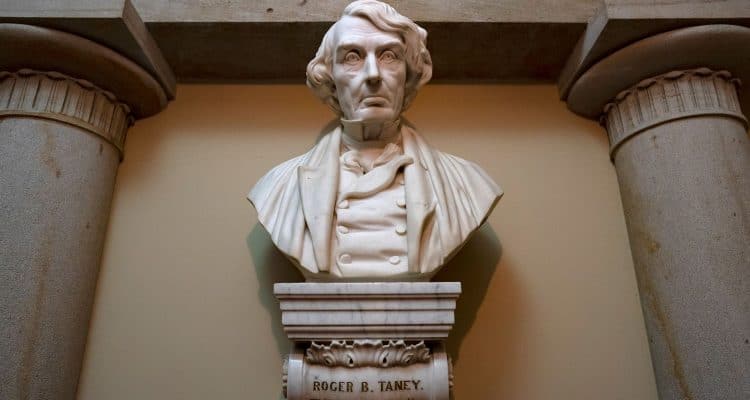The U.S. House of Representatives has passed legislation that will remove the bust of Supreme Court Justice Roger Taney from the Capitol and replace it with one of Thurgood Marshall, the first Black person to serve on the Supreme Court.
Taney was the author of the Supreme Court’s infamous 1857 Dred Scott decision. Scott, an enslaved African-American man, brought a lawsuit claiming that his family should be granted their freedom because he had lived in Illinois. The Wisconsin Territory for four years, where slavery was illegal, and the laws in those jurisdictions required slaveholders to give up their rights to slaves if they had stayed in those jurisdictions for a significant period.
In a 7-2 decision written by then-Chief Justice Taney, the Court ruled against Scott, holding that all persons descended from Africans, whether slave or free, were not citizens of the United States because the drafters of the Constitution had never intended for them to be anything but slaves. Taney further held that the Missouri Compromise, in which Congress had prohibited slavery north of the 36’30’ parallel, was unconstitutional because it deprived white citizens of their slave property without due process.
Of course, the Dred Scott decision was eventually superseded by the Thirteenth Amendment to the Constitution, which abolished slavery. Taney’s legacy is a judicial decision universally viewed as egregiously wrong on every level. It also represented a serious miscalculation on Taney’s part. While he thought his ruling would resolve the slavery question by making it a matter of settled law, it only made the situation more heated by strengthening Northern opposition to slavery and emboldening Southern successionist demands, further stoking the fires that led to the Civil War.
In support of the current legislation, Rep. Steny Hoyer, D-MD, said, “[i]n removing Taney’s bust, I’m not asking that we would hold Taney to today’s moral standards. On the contrary, let us hold him to the standard of his contemporaries, Harriet Tubman, Frederick Douglass, Abraham Lincoln . . . and all of those who understood that the enslavement of others has always been an immoral act.”
